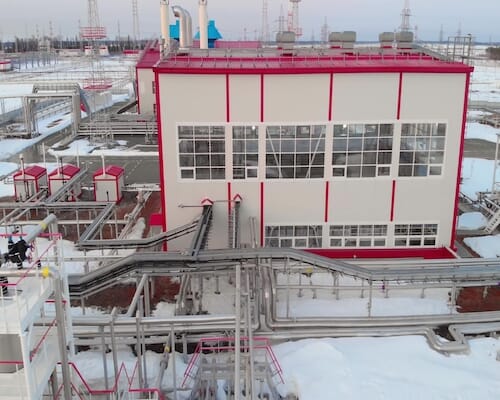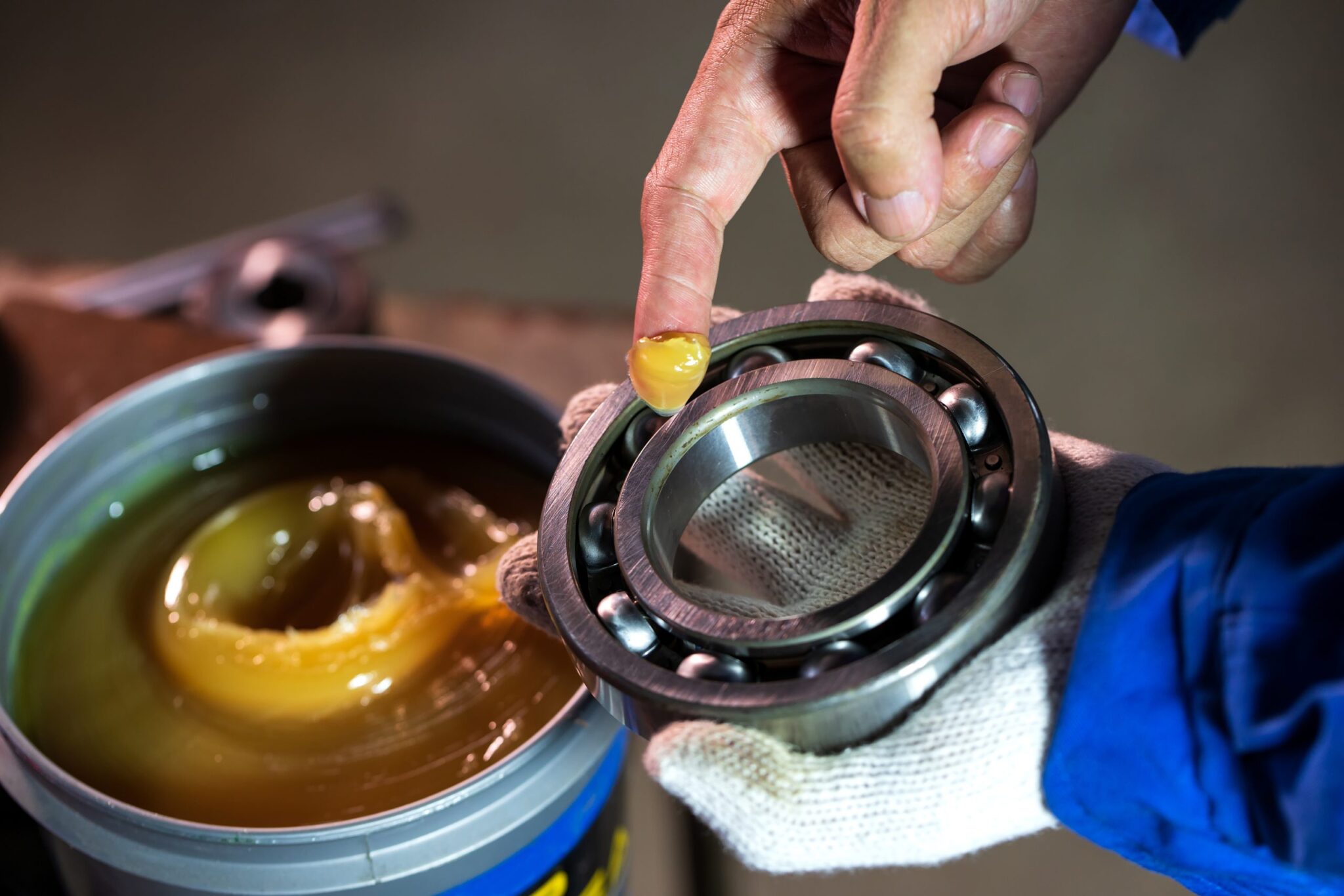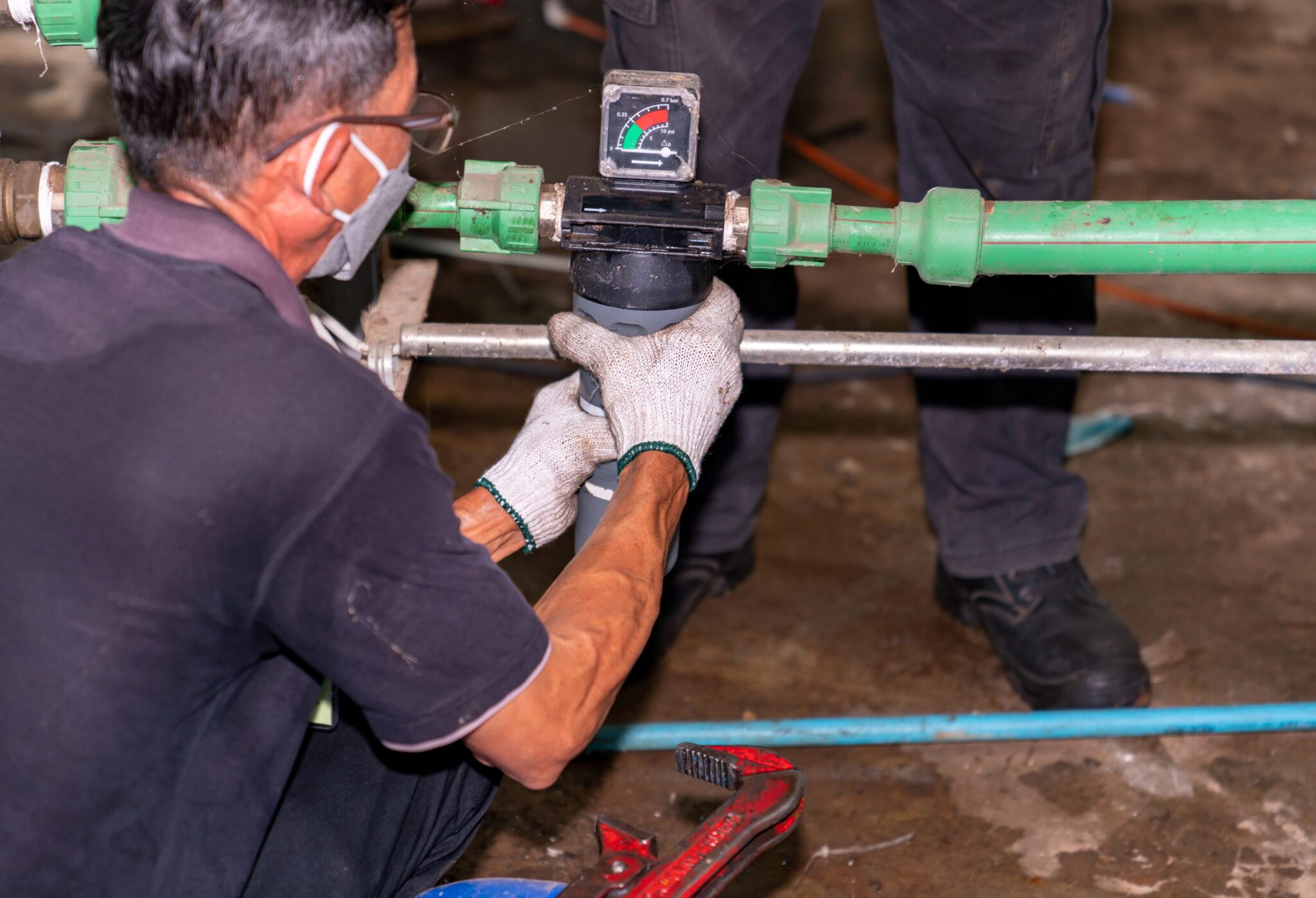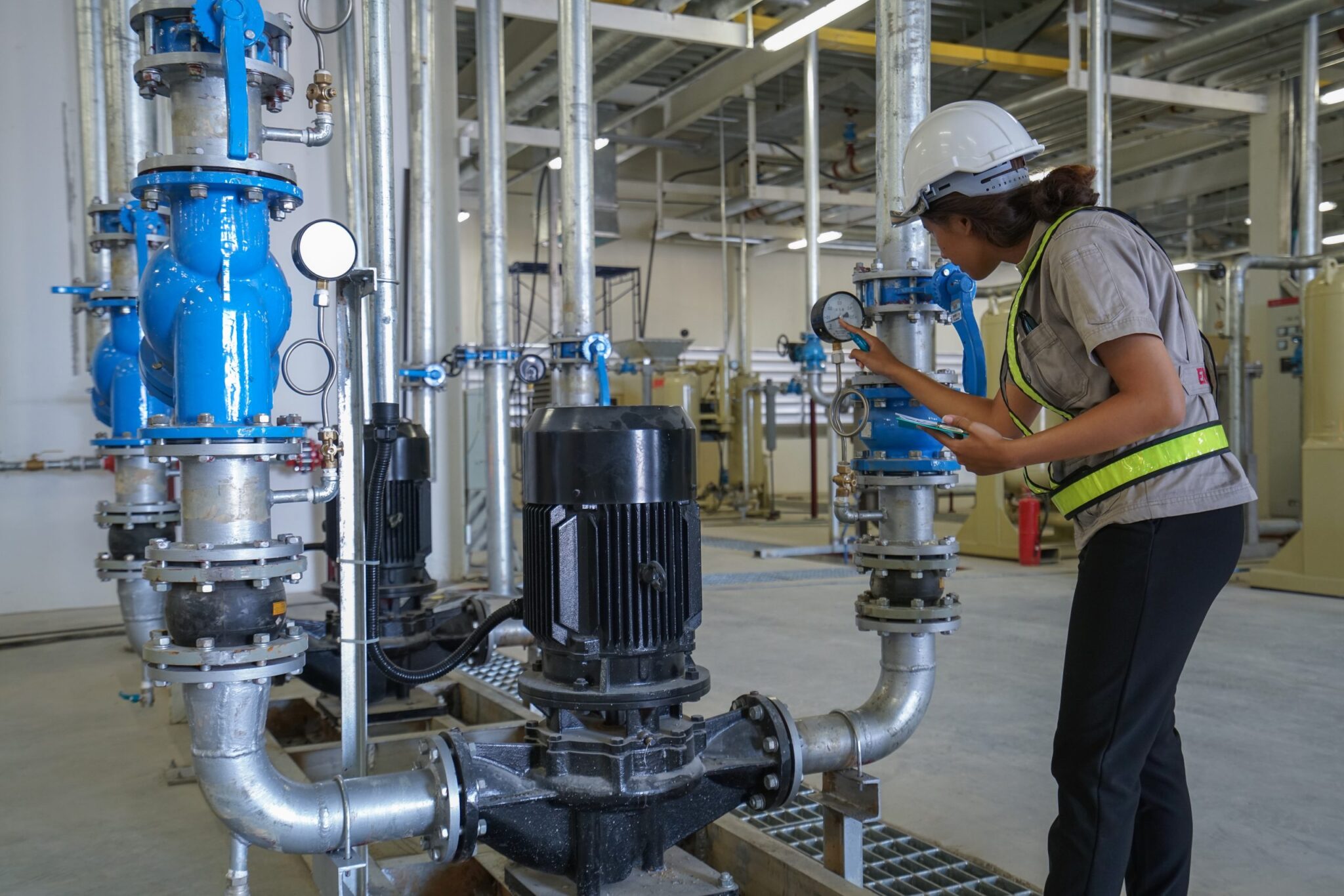
Using An Air Compressor In Cold Weather
March 15, 2023
Compressor Room Design
March 29, 2023Reasons why air compressors fail
Kaishan USA | March 22, 2023 | Uncategorized
As a compressor manufacturer, Kaishan works diligently to ensure that our rotary screw air compressors are reliable and provide good service for years, if not decades.
In fact, we’re betting they will. We back all our rotary screw air compressors with the best warranties in the industry, including a lifetime warranty on our KRSP2 premium two-stage air compressor and our KRSP premium single-stage air compressor.
In addition, our company is the third largest air compressor manufacturer in the world, manufacturing more than 70,000 air compressors a year. So we’re pretty knowledgeable about the things that cause air compressor issues. And we do our best to build compressors that will outlast any competitive product on the market.
The most frequent major failures we see on air compressors include the following:
-
-
- Overheating
- Bearing failure
- Exceeding design limits
-
Unfortunately, most of those problems result from inadequate maintenance or, occasionally, poor planning of the compressed air system. And not the result of design flaws or mechanical failures in the compressors themselves. In other words, the majority of these air compressor problems are avoidable.
Let’s walk through these issues in detail.
Overheating
Overheating is one common cause of air compressor failure. Kaishan uses oil cooling systems to remove the heat of compression, preventing heat buildup in our rotary screw air compressors.
But overheating is still a risk when the air in the work area is too hot and humid. Usually, we find that the vents for the compressor room are obstructed, or the machine is located against a wall or other structure that blocks the air flow.
One other cause for overheating is blocked or dirty oil lines, which cause oil to corrode and lose viscosity. If the overheating goes on too long, the internal parts of the air compressor will start to grind against each other, causing friction, overheating and burnout.
You may also experience overheating when your air filters are clogged. Dirty air filters also cause excess energy use, costly maintenance and downtime.
Bearing Failure
For your air compressor to operate efficiently, its bearings must be able to move smoothly. That’s why Kaishan uses oversized bearings and divides the workload, using specific bearings to handle thrust loads and others that are ideal for efficiently handling radials loads.
But, like your car, your compressor’s airend bearings need clean oil to lubricate them. Generally, that oil is delivered, cooled and cleaned by the compressor package. But the oil needs to be changes on a regular basis, as mentioned below.
In addition, your compressor motor is a sealed system but it also needs greasing, as it does not get a bath of oil on the bearings like the airend. Without proper greasing, the performance of your bearings and your air compressor’s motor will degrade quickly, resulting in overheating, excess energy consumption and premature system failure.

The bearings in your air compressor need lubricant so that they can move smoothly and keep your compressor operating efficiently.
Exceeding Design Limits
It’s easy to see how this might happen. In addition to user errors, there’s always growth: you add one additional tool or station. Then another. Or perhaps, unplanned, you’re firing up several intense operations simultaneously.
But air compressors have set limits for a reason.
It’s true that rotary screw air compressors have a distinct advantage in that they are designed to run full bore at 100% loaded, while others like reciprocating compressors are better at intermittent use. Nevertheless, it’s not wise to push your compressor beyond its limits. It may seem cost effective to run several many high-powered tasks at once. But it’s not: service will ultimately deteriorate, and you’ll shorten the life of your compressor. Specifically, if you are exceeding the design limit and using more air than your air compressor can provide, discharge pressure will be low. As a result, oil separation will not be as effective, and you will have more oil carryover.
That’s why we often recommend a multi-compressor approach, especially to handle sporadic tasks.
You’ll also waste energy and experience more downtime and shortened service intervals. And ultimately, earlier compressor failure.
Warning Signs Your Compressor Is Experiencing Problems
Several warning signs indicate your compressor is starting to fail, including noise, oil pass-through and loss of pressure.
Excessive Noise
Your air compression system often provides auditory clues that something is going wrong. Obviously, air leaks make a distinctive sound and should be addressed immediately. In addition, strange bearing noises might indicate an alignment problem or other need for maintenance. Excessive vibration is another variation on this theme.
Oil Pass-Through
When the air/oil separator becomes saturated, too much oil can pass through into the compressed air flow, negatively impacting the entire compressed air system. Typically, oil lubricated air compressors have an oil carry-over rate 3 to 5 ppm.
Loss of Pressure
Air leaks in the distribution system will make your compressed air system much less efficient. And, once again, it will make your compressor work harder to generate a diminished flow of compressed air.
Seven Ways to Avoid Air Compressor Failure
As we’ve mentioned in a previous blog, proper air compressor maintenance pays for itself in increased uptime and energy efficiency, longer equipment life and greater safety.
The critical maintenance areas described below will help you avoid most instances of air compressor failure.

Checking and replacing air filters regularly can help prevent one of the most common causes of overheating in rotary screw air compressors.
1. Air Filters
When you compress “normal” air into a smaller space, you also squeeze in millions of dust particles, water vapor and pollutants. We use air filters to remove contaminants from the compressed air that goes into your system, filtering them out at every stage of the process. That makes them one of the most essential components of your compressed air system.
Not surprisingly, dirt and impurities build up on these filters, eventually clogging up the air filter and making the system use more energy to move the air through. As a result, clogged air filters are one common cause of overheating in rotary screw air compressors.
That’s why it’s so important to regularly check and replace air filters, removing particles that can block lines, make it difficult to open and close valves and drains and cause unnecessary wear and tear on all the equipment in an air compression system.
2. Inlet Filter Cartridges
Clean vents weekly and replace the inlet filter cartridge as recommended by your compressor manufacturer. Kaishan recommends replacement after 4,000 hours or when the air filter alarm is flashing.
3. Air Line Filters
You’ll want to follow your manufacturer’s guidance to determine how often you should replace air line filters. But don’t stop there. You should monitor your filter carefully, replacing it when it appears that compressor performance has been compromised.
Some companies install differential pressure gauges on their filters to monitor the pressure drop. That way, they know when it’s time to change that filter.
4. Drain Traps
Inspect and clean drains regularly to remove the scale, rust, dirt and other solid materials that might back up a drain and allow liquid from the moisture separators to accumulate. Drains can even become stuck in the open position, allowing air to escape and pressure to drop.
5. Motor Bearings
Check with your compressor’s motor bearing manufacturer for guidance on greasing your compressor’s motor bearings. They can tell you how often you should grease them, how much grease to apply and what type is required.
Grease protects motor bearings from the heat and friction that could eventually damage them and prevent them from rotating freely. That, in turn, could shorten motor life.
6. Compressor Oil
Check the oil level before starting your compressor each day. The amount of oil in your compressor decreases as droplets get absorbed into the air and escape or are removed by the air filters and drainage system.
If the level has dropped, you’ll want to replace what’s been consumed. But be careful not to add too much oil, which could also cause maintenance issues and excessive wear.
Over time, any oil begins to break down and needs to be changed. That’s why you can’t keep adding new oil to old oil. Mixing the two ultimately will degrade the new oil quickly.
You’ll want to consult your manufacturer to help you select the right oil for your compressor and determine how often you need to change the oil. In addition, they can help you come up with an appropriate maintenance schedule based on the hours of operation, motor speed and other critical operating conditions.
Typically, fluids are rated at 8,000 hours, assuming the compressor operating temperature is 185°F. But the operating conditions play a major role in the oil’s life span—the higher the temperature, the faster your compressor oil ages. If the temps are at 200°F or 220°F, your compressor’s oil will age prematurely. And you may need to change it as often as 4,000 hours.
We also recommend that our customers have their compressor oil analyzed regularly to monitor the condition of their oil and let them know if it contains any contaminants that could severely harm their compressor.
If your compressor is using more oil than usual, seek expert help. That could indicate that your oil is leaking, the operating temperature is too high or the unit is oversized, causing it to operate at low loads.

In addition to helping air compressor systems operate reliably and safety, air/oil separators help provide them meet the stringent quality standards required for food and beverage applications.
7. Oil Filters
Replace oil filters at least every 2,000 hours (or more often if your manufacturer recommends it). Oil filters remove metal filings, calcium and other contaminants, prolonging your compressor’s useful life.
And don’t forget your air/oil separator, which keeps the compressed air from being saturated with oil mist. That’s especially important for applications that require high levels of air quality, like food, semiconductor and automotive applications.
You’ll want to change it annually or when the separator pressure alarm is energized. But preferably after 8,000 hours of use.
The Importance of Preventive Maintenance

Whether it's a mechanical or compressed air system, in our experience, a proactive maintenance strategy can help you reduce maintenance costs by as much as 70%.
Preventing and anticipating air compressor problems before they occur improves the performance and lengthens the life of your compressor, which is at the heart of your facility’s “fourth utility,” your compressed air system.
Through the years, our customers have reduced or even eliminated unplanned shutdowns, lowered service and replacement costs and reduced their energy bills.
Industry research has shown that a proactive maintenance strategy can help you reduce maintenance costs by as much as 70%.
Consulting Help
Developing a relationship with a local air compressor professional can help you address maintenance issues and prevent the problems that can sometimes cause air compressors to fail.
Kaishan works with a nationwide network of independent distributors, who can provide on-site help and consultation as needed. These factory-trained air compression experts have an investment in their local communities and can service your air compressor system without a problem.

Our network of independent distributors can handle any air compressor service request to ensure reliable operation of your equipment.
Key Takeaways
-
-
- Most air compressor failures are avoidable, usually resulting from inadequate maintenance or, occasionally, poor planning of the compressed air system.
- Air compressor maintenance pays for itself in increased uptime and energy efficiency, longer equipment life and greater safety.
- A proactive maintenance strategy can help you reduce maintenance costs by as much as 70%.
- For the most serious air compressor issues, Kaishan’s nationwide network of independent distributors, can offer professional help.
-
Let Us Help
We can help you design your air compressor system and maintain your rotary screw air compressor to avoid the problems that result in air compressor failure. If you need help meeting a fluctuating compressed air demand (and avoiding exceeding design limits) or setting up a maintenance program that works for you, get in touch with the experts at Kaishan. Contact us today.
Random stat or
customer quote
textXXtext
text
As a compressor manufacturer, Kaishan works diligently to ensure that our rotary screw air compressors are reliable and provide good service for years, if not decades.

